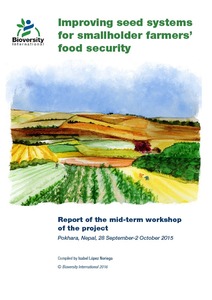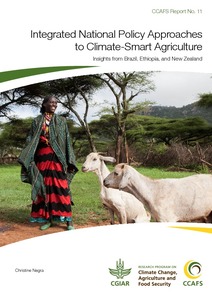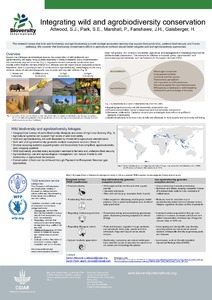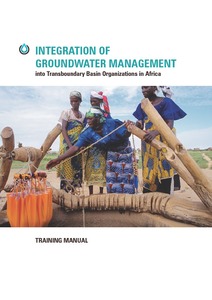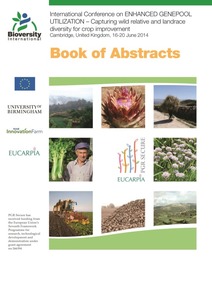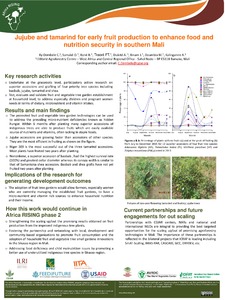Improving water sustainability and food security through increased crop water productivity in Malawi
Agriculture accounts for most of the renewable freshwater resource withdrawals in Malawi, yet food insecurity and water scarcity remain as major challenges. Despite Malawi’s vast water resources, climate change, coupled with increasing population and urbanisation are contributing to increasing water scarcity. Improving crop water productivity has been identified as a possible solution to water and food insecurity, by producing more food with less water, that is, to produce “more crop per drop”.
Improving seed systems for smallholder farmers' food security. Report of the mid-term workshop of the project
The project "Improving Seed Systems for Smallholder Farmers' Food Security" aims to contribute to a future in which farmers successfully use crop diversity to ensure their food security and that of their communities, to thrive in challenging conditions and to make their farms resilient. The project addresses to particular issues vital to this goal: i) crop diversity available for farmers through seed systems; and ii) the policies that regulate such systems.
Integrated National Policy Approaches to Climate-Smart Agriculture. Insights from Brazil, Ethiopia, and New Zealand
In the absence of clear international policy signals and strong global agreements on climate change and sustainable agriculture, countries are moving forward to test sustainability strategies through innovative policies and financing programmes. This paper explores how three countries – Brazil, Ethiopia, and New Zealand – are using integrated policy approaches to address the linked challenges of climate change, unsustainable agriculture, and food insecurity.
Integrating wild and agrobiodiversity conservation
This research shows that both wild biodiversity and agrobiodiversity provide multiple ecosystem services that support food production, underpin food security and human wellbeing. We consider that biodiversity conservation efforts in agricultural contexts should better integrate wild and agrobiodiversity approaches
Integration of groundwater management:into transboundary basin organizations in Africa
International Conference Enhanced Genepool Utilization - Capturing wild relative and landrace diversity for crop improvement, Cambridge, United Kingdom, 16-20 June 2014. Book of Abstracts
This conference presents the culmination of the PGR Secure project (www.pgrsecure.org) – a collaborative project involving eleven partners funded under the EU Seventh Framework Programme, THEME KBBE.2010.1.1-03, 'Characterization of biodiversity resources for wild crop relatives to improve crops by breeding', Grant agreement no. 266394. It is jointly organized with the section on genetic resources of the European Association for Research on Plant Breeding (EUCARPIA).
Irrigation infrastructure for sustainable and improved agricultural productivity. Topic Guide
Is reliable water access the solution to undernutrition? A review of the potential of irrigation to solve nutrition and gender gaps in Africa South of the Sahara
Interventions aimed at increasing water availability for livelihood and domestic activities have great potential to improve various determinants of undernutrition, such as the quantity and diversity of foods consumed within the household, income generation, and women’s empowerment. However, current evidence on the topic is diluted across many different publications. This paper aims to connect the dots and review the literature available on the linkages between irrigation and food security, improved nutrition, and health.


